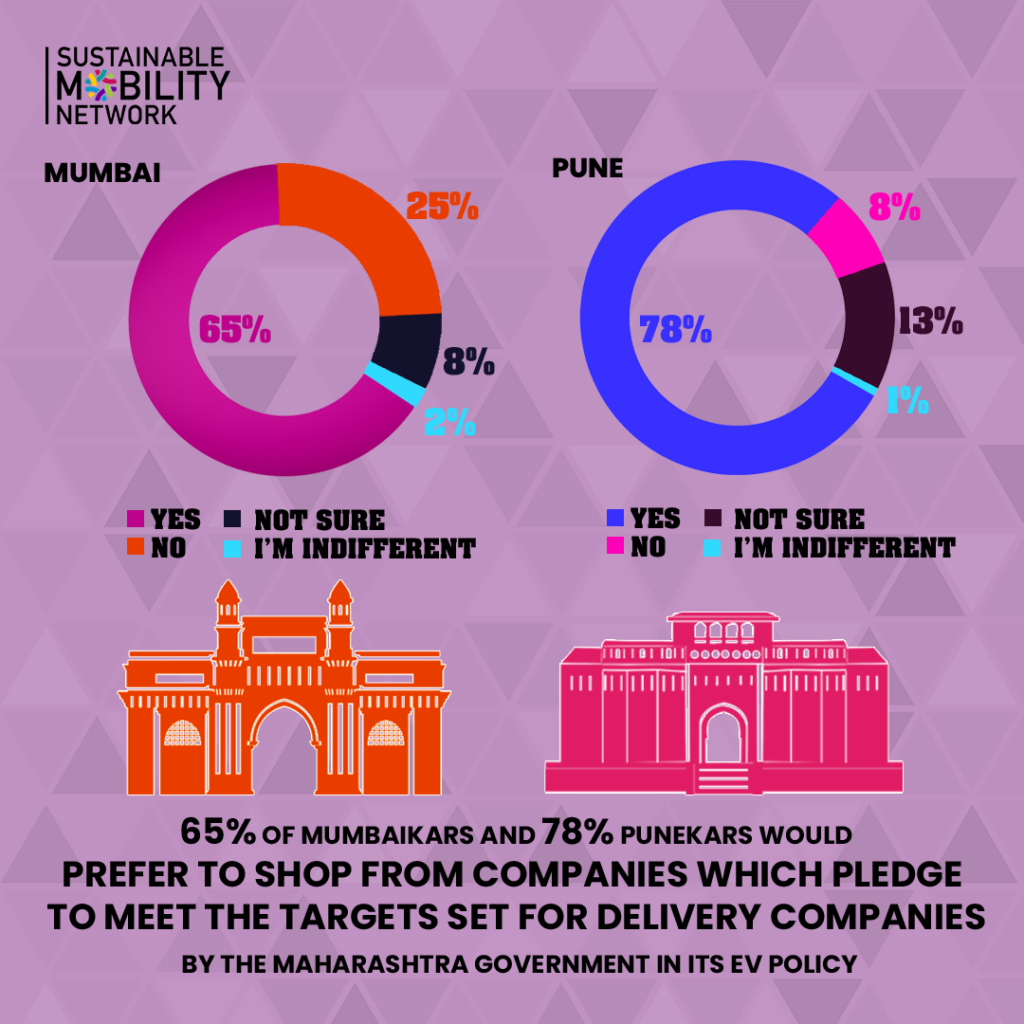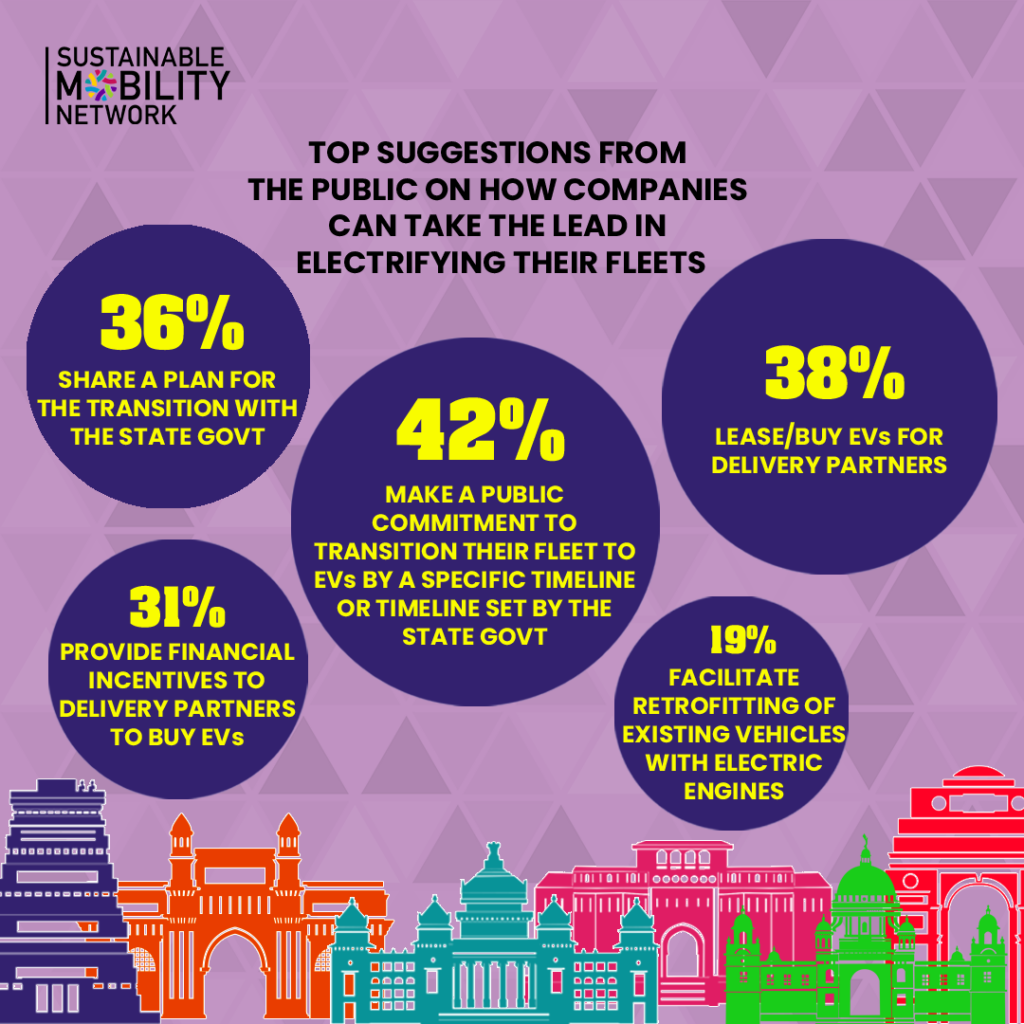78% of consumers across 6 cities in India attribute last mile delivery vehicles to rising air pollution and climate change
November 10, 2022
The Sustainable Mobility Network (SMN), a collective of like-minded civil society organizations working across India to actively decarbonize transport and promote sustainable mobility, decided to focus on building a narrative around the linkages between increasing consumption in the e-commerce space and the rise of delivery vehicles to the increase in air pollution in our cities. Which in turn contribute to the wider issues around overall emissions, climate change and global warming.
The narrative building approach stemmed from a realization that it was important for SMN as a network to reaffirm the basics of the issues and build awareness amongst our stakeholders.
The first focus area was for us have better understanding on consumer awareness on:
- increasing use of delivery vehicles
- air pollution and
- corporate responsibility to proactively transition their fleets.
To do this, , the SMN commissioned a consumer survey, conducted by CMSR Consultants, across 6 Indian cities- Delhi, Mumbai, Pune, Bangalore, Chennai and Kolkata. These cities were selected because they are among the largest tier 1 cities in India. They comprise a core market for most of the delivery companies, so consumer responses are highly indicative of overall consumer perceptions of the companies and their current use of delivery vehicles. In addition, there was a conscious attempt to ensure that the maximum respondents (94%) were from the 18-45 years age group, who again represent the core customer base for the companies.

KEY FINDINGS
Conducted among 9048 consumers across the 6 cities, the survey found that:
- An overwhelming desire from consumers to see accelerated EV transition from e-commerce and delivery companies in response to air pollution and climate change.
- 78% of all respondents attributed last mile delivery vehicles as one of the reasons for rising air pollution in the cities.
- 67% of all respondents supported a switch to EV vehicles by the delivery companies to reduce air pollution and mitigate climate change.
- Majority of respondents (93%) believe proactive action and transition by one company can encourage other companies and create rapid change in the sector.

The respondents also stressed the need for a socially just transition of their delivery fleets by companies including strong support mechanisms and aid for the workers.
The key companies identified by consumers as part of the survey include the biggest e-commerce and food/grocery delivery companies like Amazon, Flipkart, Swiggy and Zomato along with a range of other smaller players.
Interestingly, the survey also highlighted why it’s not just companies alone that can create change in the sector. Two Indian states, Delhi and Maharashtra have put in place policies which require transition of fleets by companies and the survey saw strong consumer support for these policies and as well as support for companies which proactively comply with these state government requirements to rapidly decarbonize their fleets.
In closing the survey primarily highlights how people want delivery companies to clean up their act and ACT NOW!
By Siddharth Sreenivas, Senior Campaigner Clean Mobility Collective